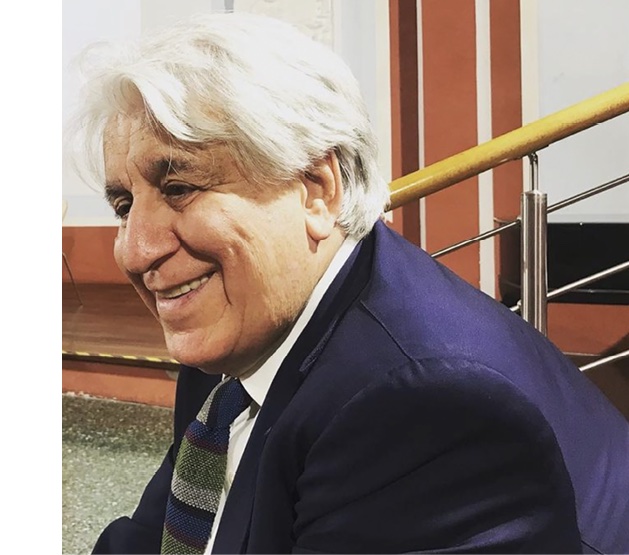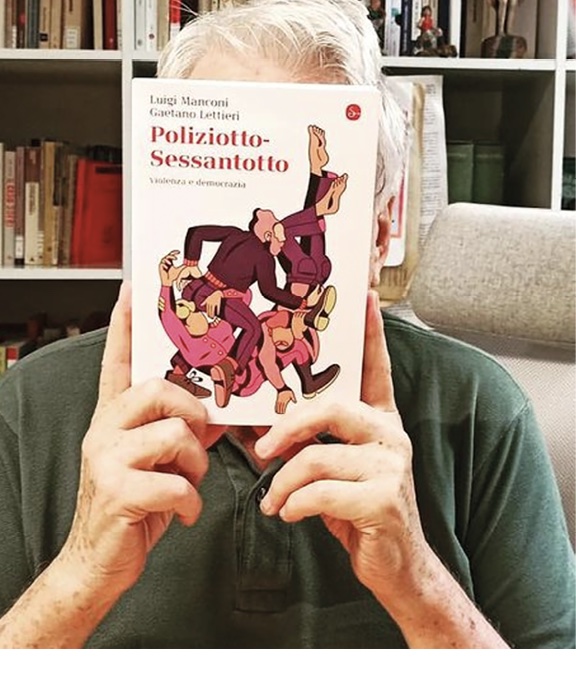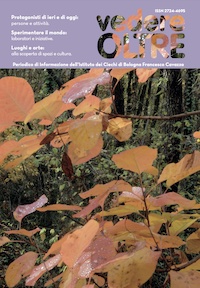An important personality of the Italian political and social scene, formerly President of the Extraordinary Commission for the Protection of Human Rights of the Italian Senate and now founder and President of A Buon Diritto onlus, Luigi Manconi is a man rich in humanity, deeply committed and insightful. Luigi Manconi wrote the preface to Cavazza’s book Vedremo (We’ll See), Pendragon publishers, which collects the stories of four young people. The book launch took place at the Palazzo d’Accursio.
What prompted you to accept the invitation to write the preface of Vedremo?
To this day, I have experienced my blindness in a very personal way. I cannot say privately because it is a known fact and, consequently, anyone who meets me is aware of it, but I have done so in my own way and in my own style. I have never had any relationship with the Italian Blind Union or any other organizations of persons living with vision loss.
When I was asked to write the foreword piece, I thought the time had come, let’s say, to take public responsibility, starting with a consideration that I have never forgotten and on which I insist a great deal.
I am a privileged blind person. I cannot pretend that my condition is the same as that of all blind people because I have material and intellectual resources that not everyone has, and in the past, I have enjoyed privileges and even at present I have supports and aids that the vast majority of visually impaired people do not have. It was therefore time to make my testimony heard, so that sighted people would become aware of it. Although I am a privileged blind man, I remain a blind man and therefore share most of the hardships, loss and difficulties that blind people face daily. Perhaps, with my testimony, I can contribute to making sighted people aware of the situation of those who no longer have sight or have never had it or have it in such a reduced form that they face daily difficulties.

In your text you emphasize how the “normality of such abnormality” can become an asset and a resource to be exploited. What can we do about this?
I think that, without any temptation to pride and conceit and false consolation, vision loss gives something more in terms of sensitivity. So, to bring this sensitivity into play, to share it, to bring it into our relationships with others, to exchange it with the sighted, to make it known, to make it matter is important in our relationships. I’ll say it again, I am convinced that those who cannot see acquire faculties of perception, knowledge, intelligence that must be made available to all, passed on.
Today, “visibility,” especially for young people who are very active on various social networks, is the main way of expressing oneself.
Can writing, for our blind children, be an alternative way of telling their stories?
Writing is one of the most fantastic resources human beings have, it is the most important invention of mankind along with the wheel, it is something wonderful because it means communicating in a solid manner. Every time a person with communication difficulties writes something, that person makes a work of art, expresses their ingenuity, and makes it available to another person or to many people. Let me make a comparison: Those who are detained in a prison find themselves in a situation that in some ways–I stress in some ways–is similar to that of the blind, the mute, the deaf, that is, the inability to communicate with others. The moment that prisoner finds the strength to communicate, through theatre, writing, painting, the world comes to them, and they come to the world. A relationship develops, and the human being is relationship. The human being is not meant to be alone, but to be in a relationship.

Your non-profit association A Buon Diritto is committed to creating a culture of rights in our country and defending people who are denied them. What can we do to achieve respect for freedoms for all?
To support what I was saying at the beginning of the interview, my association, founded in 2001, does not deal with people with physical or mental disabilities, but deals with other situations where rights are lacking.
From migrants to prisoners, from foreign minors to mental patients. There is no recipe, there is an urge: express your right. This is what I would say: express it. And since saying it is not easy, and especially not easy to be heard once you have said it, this is the task of an association, an activist, a movement, but also of a trade union, a political party: to say your need for rights. Once you have decided with all your might, made a choice, created an opportunity in which to say, all that comes next is collective and public action. It is politics. Making sure that that right is recognized. Inclusion and social justice are topics at the centre of international debate, but often in everyday life prejudices still dominate the scene. Could learning to respect each other’s differences foster a less limited view of the world and improve the future for our youth?
One must be aware that rights or social justice are not goals placed at the end of a path already mapped out, and that therefore a few steps or many steps will be taken once and for all. It is not at all like that. Rights, and even more so social justice as a public and collective good, are the result of a continuous battle, of a movement that does not stop, that goes on and on, and that experiences defeats, setbacks, backward steps. Individual and social life must be understood as a continuous battle for the affirmation of these rights.
You have a new book out Poliziotto-Sessantotto (written with Gaetano Lettieri, Il Saggiatore publishing house). Do you want to tell us about it? What does writing mean to you?
I have always written a lot, right from my teenage years. Then it was an eventful life, full of things, I was very lucky. I have had many experiences, many encounters, many cities, many people. As time went by, I felt more and more the need to chronicle all this, not as a personal diary, but as an account of the social process within which I have been fortunate enough to move in this more than half-century of life.





.png)